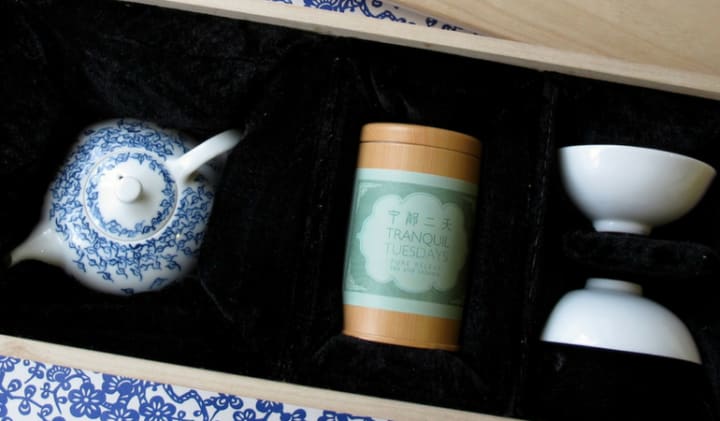CULTURAL DIFFERENCES AROUND THE WORLD THAT WILL SURPRISE YOU
The greatest challenge today is accepting that there are differences among us.

The world has now turned into a global village. The advances in information technology have made it easier to travel across geographical borders and communicate across time and space. But unfortunately the technological revolution hasn’t done anything to facilitate better communication inter-culturally. In order to have an effective collaboration between cultures, efforts must be made to develop common shared meanings. For that purpose, we have to understand the cultural differences among us and share cultural information.
Thailand – Not with the Feet

In Thailand, the head is considered to be the most sacred part of the body (NEVER touch a Thai person on their head), and the feet are considered to be the dirtiest. In fact, you can read about a backpacker in Thailand who had her feet up in a bus go viral recently. Bottom line is, anything that involves using your feet, try avoiding it when in Thailand.
Tips: Don't point your feet: Pointing your feet at someone, raising your feet higher than someone's head, or simply putting your feet on a desk or chair are considered extremely rude in Thailand. The bottoms of the feet are dirty: don't show them to people! Avoid pointing feet at Buddhas in and outside of temples.
Africa and the Middle East – Yes, They Are Holding Hands

In many parts of the Middle East and Africa, men hold hands as a sign of friendship and trust. In North America in Europe not so much.
Handshakes are softer in Middle Eastern countries; a bone-crushing grip and fist pumping action are considered rude. Your contact may hold your hand for longer than you feel comfortable with, too; this is purely a sign of respect and welcome. As you shake hands, say ‘As-salaam alaykum’ (‘peace be upon you’); the response is ‘Wa alaykum as-salaam’ (peace be upon you, too).
Singapore – Chewing Gum? Good Luck

In Singapore, most gum has been illegal since 1992 when residents grew tired of scraping the sticky stuff off their sidewalks. According to Singapore Statutes Online, the first-time penalty for the selling of gum can be as high as $100,000 or a prison sentence of up to two years. Penalties are subject to rise with each conviction, but certain chewing gums that have medical benefits will be allowed.
Pointing with the thumb in Malaysia

Some countries find the act of pointing with the index finger to be abrasive and rude. While members of most cultures would probably agree that pointing fingers, both literally and figuratively isn’t exactly the nicest thing in the world, in countries like Malaysia and Indonesia, this gesture can be seen as incredibly offensive. Instead, it is customary to gesture towards things with the thumb as this is seen as a more polite option. In many countries in Africa, pointing is reserved for inanimate objects only, not people.
Slurping in Japan

Most societies around the world have rules about table etiquette. For western cultures, noisily consuming food is considered rude. In Japan, however, making slurping sounds while eating has an entirely different meaning. This might have something to do with the fact that in western countries, noodles are properly consumed by twirling them on a spoon before putting them in the mouth. Meanwhile, the Japanese simply slurp up their noodles without contorting them first, an act that is naturally noisier than the former. Making slurping sounds when eating noodles in Japan is a way of indicating that you’re really enjoying them. Some scientists even argue slurping invites air into the palate and actually enhances the noodles’ flavor.
Be careful of what you give to Chinese colleagues

Majority of the Chinese are superstitious as well and attach meanings to various things. When presenting your Chinese friends with flowers, avoid using white, which they associate with ghosts and death. In the United States, white flowers symbolize innocence and purity. Likewise, avoid flowers with thorny stems. Other things that are not good gifts for the Chinese are:
Clock. Its name in Chinese (sòng zhōng, meaning send clock) sounds like sòng zhōng or funeral rite. It is also taken to mean that time is running out, or life and relationship can end.

Handkerchief .–In Chinese, it sounds like a farewell greeting.
Umbrella. Offering or giving your Chinese friend or colleague an umbrella is a subtle hint of ending a relationship. You can share your umbrella but you have to take it back with you.
Gifts that come in sets of four. The number 4 is associated with death.
Straw sandals, shoes. It is also taken to mean that you want to part ways.
Green hat. Green is considered lucky by other people because it is the color of money. For the Chinese however, a green hat means that the wife is being unfaithful.

Avoid using red ink for writing names of your friends in South Korea

Pen inks come in a wide array of colors and sometimes it is fun to use them to make colorful doodles, drawings and whatever. For some people, it does not matter what ink color you use to write their names with, as long as their names are spelled correctly. For South Koreans however, you can use other colors except red because for them red ink symbolizes death.
Kazakhs – Kazakhstan

The Kazakhs are a semi-nomadic tribe who have been travelling through the mountains and valleys of Kazakhstan since the 15th century. They are descendants of Mongols and other nomadic tribes of Central Asia and still hold onto traditions that are centuries old. Along with taming wild horses, one of their most famous ancient traditions is hunting with eagles. It is seen as the highest form of art and dedication. The annual Golden Eagle Festival sees wolf-skin clad Kazakhs take to the mountains on horseback and golden eagles soar into the skies in celebration of this unique heritage.






Comments
There are no comments for this story
Be the first to respond and start the conversation.